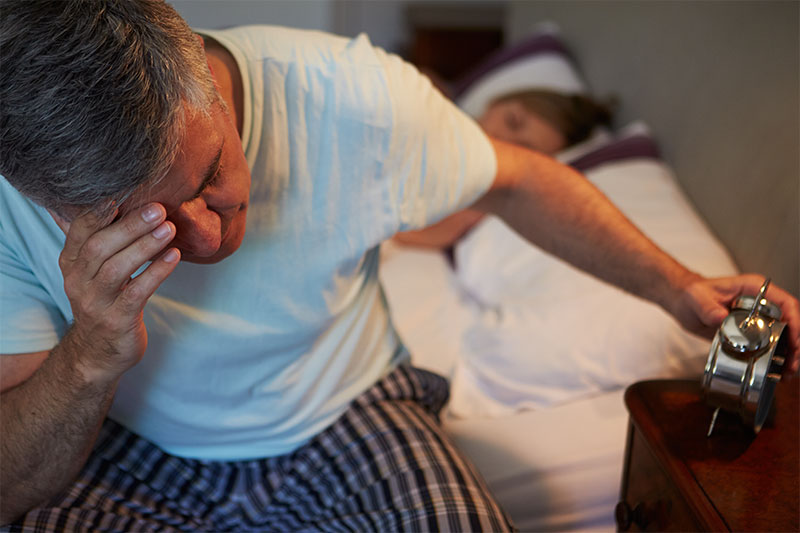I Wake Up Tired After A Full Night’s Sleep
Why am I not getting enough rest even after being asleep for eight hours?
Patients who have sleep apnea quit breathing for very brief periods when the soft tissues near the airway collapse and obstruct the airway opening. When this happens, the brain rouses the patient in order to restore normal breathing. Then the cycle repeats itself. This can happen anywhere from five times in an hour in mild sleep apnea cases to 30 times per hour in the most severe case. Typically, patients aren’t even aware that they are waking up numerous times throughout the night. But your body is affected, and you experience daytime fatigue as a result.


How is sleep apnea affecting my health?
The daytime drowsiness caused by sleep apnea has a number of effects on your health. It can make you more susceptible to mood issues like depression and anxiety. It can also make it more difficult for you to focus on important tasks. In some cases, this can create a safety risk, such as when driving or operating machinery when tired.
In addition to the problems caused by fatigue, sleep apnea is associated with other health effects. The condition, if left untreated, can lead to worrisome issues like high blood pressure, atrial fibrillation, diabetes and stroke. To reduce these risks and benefit from higher energy levels, patients with signs of sleep apnea are strongly encouraged to seek treatment for the condition.
What can I do to get better sleep?
Patients with sleep apnea don’t have to be resigned to dragging themselves throughout their routines on a day-to-day basis. Effective treatment options are available, and they don’t all require the patient to wear an unwieldy CPAP mask that can interfere with sleep just as much as the apnea itself does. Oral appliance therapy is a more comfortable and convenient option in which patients wear a custom-designed mouthguard during sleep to prevent the airway obstruction from occurring. The mouthguard fits entirely in the interior of the oral cavity, and patients often don’t even notice that they’re wearing it, allowing them to finally get a full night of sleep.
Want to feel more energetic throughout the day? Call our office to schedule an evaluation and get more information about treatment options for sleep apnea.
